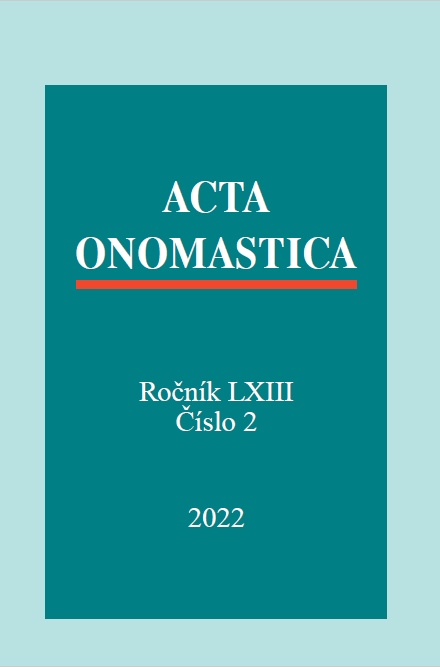Antroponymické svědectví o vlivu erasmovského znění Nového zákona na Blahoslavův překlad
Anthroponymic testimony to influence of an Erasmian New Testament reading upon Blahoslav’s translation
Author(s): Robert DittmannSubject(s): Translation Studies, History of Religion
Published by: AV ČR - Akademie věd České republiky - Ústav pro jazyk český
Keywords: Jan Blahoslav; New Testament of 1564 and 1568; Erasmus; Greek; biblical anthroponymy; Book of Revelation
Summary/Abstract: This article explores the reading of the name Abbadon (Book of Revelation 9:11) in Jan Blahoslav’s translation of the New Testament (1564, 1568). This reading, unique among Czech printed versions prior to the Battle at the White Mountain (1620), reflects the Greek variant Ἀββαδών, occurring in editions prepared by Erasmus of Rotterdam and in some other prints. While the variant Ἀββαδών dominated before the 1540s, in Stephanus’ editions (1546–1551) the variant Ἀβαδδών was consistently used and also prevailed in Greek sources in the latter half of the century. Latin Vulgate tradition preferred its exact parallel Abaddon in the most influential editions except for a short period of Stephanus’ editions around the mid-16th century. Among the Latin translations, only the fifth edition of Erasmus (1535) and Biblia Tigurina adopted the variant Abbadon. Thus, it is highly probable that in Blahoslav’s versions, the typical Greek reading of the 1510s to 1530s and Latin reading of the Erasmian fifth edition and its follower Biblia Tigurina left their specific trace in the Czech biblical translation tradition.This article explores the reading of the name Abbadon (Book of Revelation 9:11) in Jan Blahoslav’s translation of the New Testament (1564, 1568). This reading, unique among Czech printed versions prior to the Battle at the White Mountain (1620), reflects the Greek variant Ἀββαδών, occurring in editions prepared by Erasmus of Rotterdam and in some other prints. While the variant Ἀββαδών dominated before the 1540s, in Stephanus’ editions (1546–1551) the variant Ἀβαδδών was consistently used and also prevailed in Greek sources in the latter half of the century. Latin Vulgate tradition preferred its exact parallel Abaddon in the most influential editions except for a short period of Stephanus’ editions around the mid-16th century. Among the Latin translations, only the fifth edition of Erasmus (1535) and Biblia Tigurina adopted the variant Abbadon. Thus, it is highly probable that in Blahoslav’s versions, the typical Greek reading of the 1510s to 1530s and Latin reading of the Erasmian fifth edition and its follower Biblia Tigurina left their specific trace in the Czech biblical translation tradition.
Journal: Acta Onomastica
- Issue Year: 64/2023
- Issue No: 2
- Page Range: 321-330
- Page Count: 10
- Language: Czech

